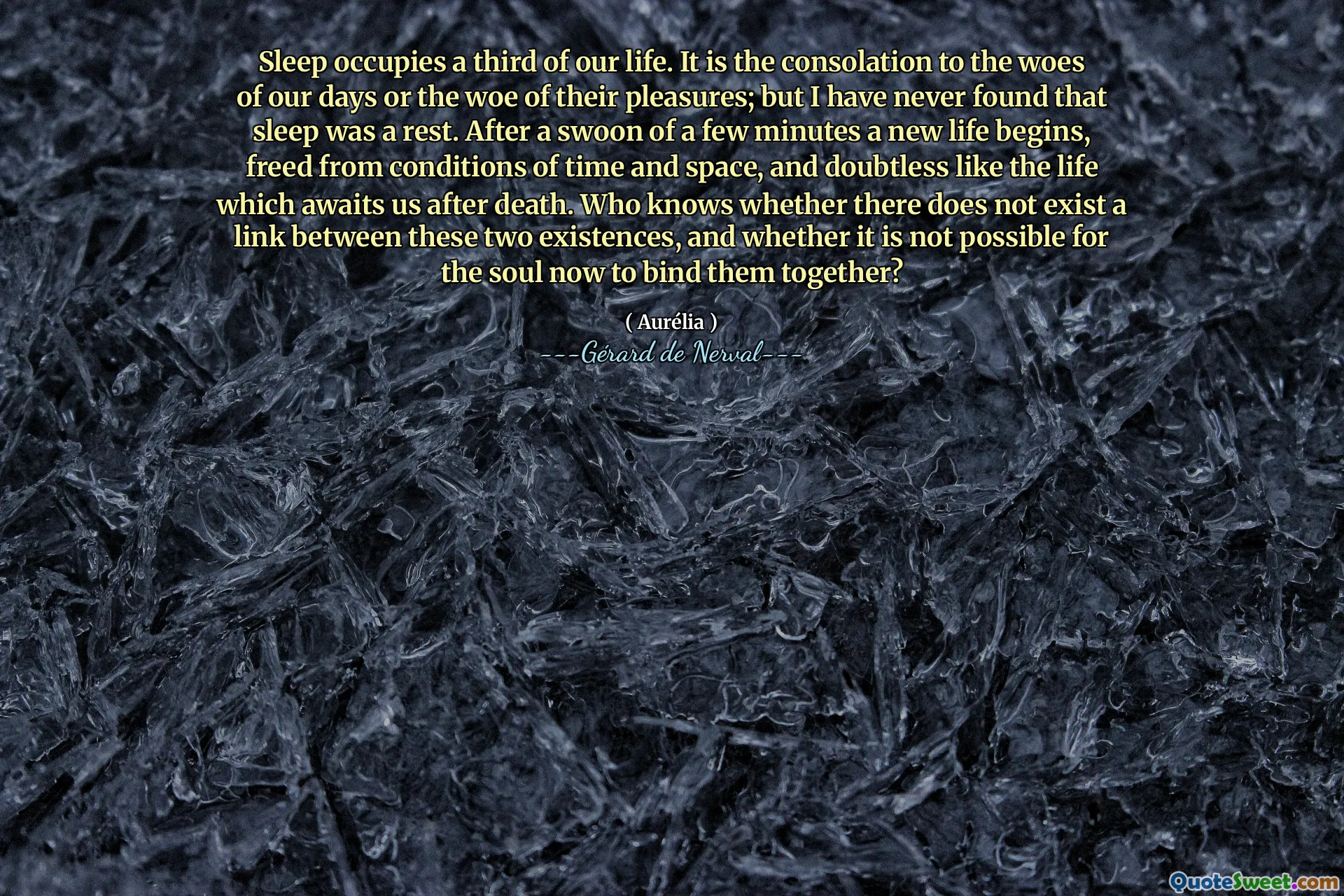
Sleep occupies a third of our life. It is the consolation to the woes of our days or the woe of their pleasures; but I have never found that sleep was a rest. After a swoon of a few minutes a new life begins, freed from conditions of time and space, and doubtless like the life which awaits us after death. Who knows whether there does not exist a link between these two existences, and whether it is not possible for the soul now to bind them together?
This quote from Gérard de Nerval's '(Aurélia)' explores the mysterious nature of sleep and its potential connection to the afterlife. The notion that sleep occupies a significant portion of our lives underscores its importance, yet the speaker questions whether resting asleep is truly restorative. Instead, sleep is depicted as a temporary pause—a suspension that transitions us into a state beyond ordinary consciousness, where conditions of time and space dissolve. The comparison of those few minutes of unconsciousness to a 'swoon' suggests that sleep may serve as a gateway to a different realm of existence, hinting at an afterlife or parallel spiritual dimension. Nerval's musings evoke the idea that sleep might be more than mere physiological resting but a liminal space where the soul and consciousness intertwine, bridging life and death. This reflection prompts us to consider the depth of human consciousness and the possibility that our sleep is a kind of prelude or remnant of the eternal journey that spirit may undertake. It invites us to think about the boundaries between life, death, and what lies beyond, encouraging a sense of wonder and philosophical curiosity about the nature of existence and the mysteries of the soul. Such contemplations are characteristic of Romantic literature, where the exploration of subconscious and mystical themes invites introspective reflection on our multifaceted nature as both physical and spiritual beings.


